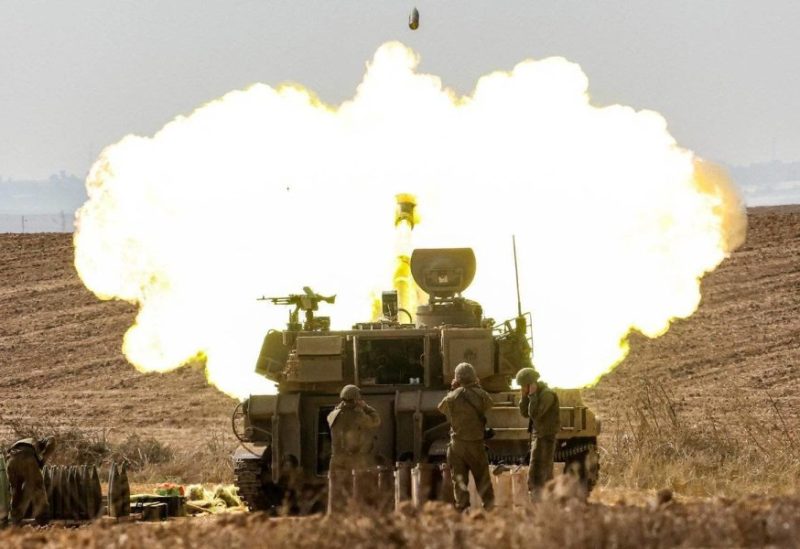
Their precise location is classified, but somewhere in Israel there are multiple closely guarded warehouses that contain billions of dollars’ worth of weapons owned by the US government.
The stockpile was first established in the 1980s to rapidly supply US forces for any future Middle East conflicts. However, over time, Israel has been permitted in certain situations to draw from its extensive supplies, The Guardian revealed in its reported.
Long shrouded in secrecy, the warehouses are part of an extensive but previously little-known stockpile now facing scrutiny as pressure mounts on the Biden administration over its support for Israel’s bombardment of Gaza.
Israel now appears to be receiving munitions from the stockpile in significant quantities for use in its war on Gaza, yet there has been little transparency about transfers from the arsenal.
In interviews with the Guardian, multiple former US officials familiar with American security assistance to Israel have described how the stockpile enables expedited arms transfers to the Israeli army It can also shield movements of US weapons from public and congressional oversight, they said.
“Officially it’s US equipment for US use,” a former senior Pentagon official said, “but on the other hand, in an emergency, who’s to say we’re not going to give them the keys to the warehouses?”
Since the emergency of war, Israel has dropped tens of thousands of bombs in Gaza, and it has been open about its demand for large amounts of US-supplied munitions.
There are widely held concerns that Israel’s bombing of Gaza has been indiscriminate. And with close to 20,000 people dead in Gaza, according to local authorities, the US is facing questions about the quantities and categories of bombs it is providing to Israel and the proportion being made available through the secretive pre-positioned stockpile.
In Washington, lawmakers have raised concerns about proposals by the White House that would relax rules on the kinds of weapons placed in the stockpile, waive spending caps on its replenishment and give the Pentagon greater flexibility to make transfers from the arsenal, the report read.
Josh Paul, who recently resigned from the state department in protest at Washington’s continued lethal assistance for Israel, said the proposed changes to the stockpile were part of a drive by the Biden administration to find new ways to supply Israel.
After Hamas attack in October, he said, there was a press from the White House “to say essentially we need to figure out every possible [legal] authority that we could give Israel that would get it weapons as fast as possible.”
The full contents of the pre-positioned stockpile – known as the War Reserve Stocks for Allies-Israel (WRSA-I) – are not publicly disclosed, though former officials say the Pentagon provides Congress with an annual breakdown of what it holds.
The report may be classified, but earlier this year an unusually candid description of the stockpile’s contents emerged when a former US military chief recalled in an op-ed touring the WRSA-I warehouse.
“The current stockpile is full of so-called dumb munitions [those without sophisticated guidance systems],” he said, including “thousands of ‘iron bombs’ that are simply dropped from aircraft so gravity can do its work”.
In 2020, this abundance of dumb munitions in the stockpile was highlighted by a pro-Israel thinktank, the Jewish Institute for National Security of America, which complained that WRSA-I had become “obsolete” because of its high levels of unguided bombs and shortage of precision-guided munitions (PGMs).
In its latest aerial bombardment of Gaza, however, Israel has relied heavily on these lower-accuracy unguided munitions, which weapons experts say has undercut claims by the Israeli army that it is trying to minimize civilian casualties.
The army and Israel’s defense ministry did not respond to requests for comment.